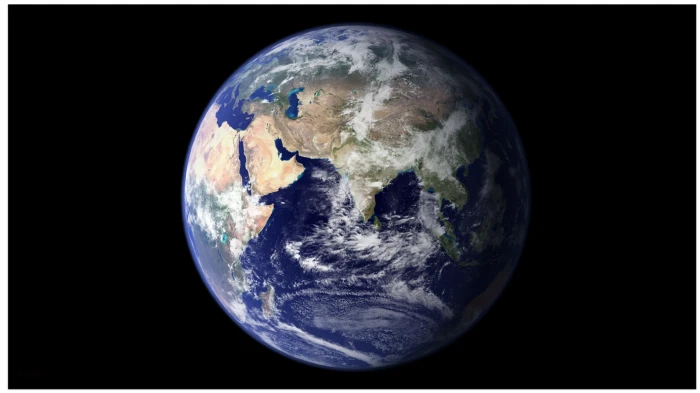Small Actions for Big Change
By Rebekah Moses, Head of Impact at Impossible Foods

The past few years have seen major news for climate action.
The end of 2018 saw landmark publications connecting food to climate, proposing ‘livable’ climate scenarios, and predicting a quantifiable mess unless there is rapid collective action. Now, the historically sluggish pace of past climate action is prompting protests(opens in a new tab) and rallies around the world(opens in a new tab) — notably led by Earth’s younger residents. They’re not just frustrated — they’re kind of pissed(opens in a new tab). They’re mobilizing, and it’s awesome.
It’s sometimes annoying when people say, ‘Oh you children, you young people are the hope. You will save the world’ … I think it would be helpful if you could help us just a little bit.” — Greta Thunberg, political activist and climate strike leader, 16
Few people — particularly those who will inherit the planet — would be content when confronted with the news that Earth is in the middle of its sixth mass extinction(opens in a new tab): that ice caps are melting (probably heading straight for your sea-level basement) and polar bears are disappearing. Nearly half of all young Americans consider the health of the planet to be the most important part of the US international agenda.
In fact, 92% of American youth say they are willing to act(opens in a new tab) in small ways for a global future that leaves no one behind. Small actions, done widely, add up to big changes for the planet.
At Impossible Foods, we decided a long time ago that we weren’t just going to sit on our heels(opens in a new tab) either about this whole trashing the planet thing. While our approach is relentless optimism for creating solutions that avert climate change and preserve biodiversity, we know that being a little angry drives determination. Students marching out of classrooms are, very reasonably, asking for a whole lot more determination from the generations that preceded them.
If we just sit back, farming animals may take up half of the internationally recognized climate budget(opens in a new tab), despite the flexible nature of what people eat. Continuing to rely on animals for meat will overextend natural resources beyond repair. Even investors holding billions of dollars in fast-food assets are calling on the animal product retailers to make big changes(opens in a new tab).
The best, fastest solution to accelerating these climate action goals? Reduce reliance on animals to make meat.
Decreasing demand for cattle would shrink greenhouse gas emissions while increasing the amount of carbon stored through vegetation. It would slow deforestation and biodiversity loss. It would release land from overgrazed pasture and soy monoculture back into carbon-grabbing forests and grasslands. And it would avoid putting all our eggs into the energy sector basket (climate mitigation plans are betting hard on renewables(opens in a new tab), when so much can be achieved through diet).
A plant-based meat transition wouldn’t require new infrastructure or new forms of capital. A plant-based food system would bend existing value chains, unlike the drastic energy infrastructure changes proposed to upend coal (still the world’s primary fuel source). It also wouldn’t require depending on rapid and dramatic yield improvements in the existing agricultural system.
And yet, beef consumption is expected to rise by more than 80% in the coming decades.
Let’s face it, eating plants is more sustainable than eating animals, but often it just can’t compare. Giving up meat is actually a very big and difficult change, even for those that are a little angry about the state of the planet.
So how can all of us, with the power of small actions — like replacing ground beef burgers in your diet with plant-based ones — make big changes for the planet and food security? Rather than expect people to give up meat, Impossible Foods is providing a more sustainable version that’s as good or better than the animal version, competing on taste and nutrition.
This year, we worked with Quantis(opens in a new tab) to perform a Life Cycle Assessment (LCA)(opens in a new tab) on the new recipe of Impossible™ Burger. The study compares Impossible™ meat from plants to conventionally-produced ground beef from cattle. The findings show that choosing Impossible Burger over ground beef from cows uses 96% less land, generates 89% less of the greenhouse gases that cause global warming, and uses 87% less water that’s better left to nature and people. Additionally, the Impossible Burger has a 92% efficiency advantage over beef’s contribution to aquatic pollution through nutrient runoff. (You can see the full report here(opens in a new tab) on our website.)
Pound for pound, our product can spare 27 pounds of GHGs, 290 square feet of land, and 90 gallons of fresh water when selected over beef. Alone, it doesn’t sound like much, but multiply that by some 9 billion pounds of ground beef consumed each year in the US. With the right tools (like delicious meat made from plants), anyone can change the world for the better.
A toast to the young, pissed off earthlings.
You’re starting your own bigger and more important version of the space race — for a stable global climate and resilient food supply. You’re getting things done by demanding small actions from all people. We’re here to help, one pound of Impossible™ — 27 pounds of GHGs, 290 square feet of land, and 90 gallons of water — at a time.